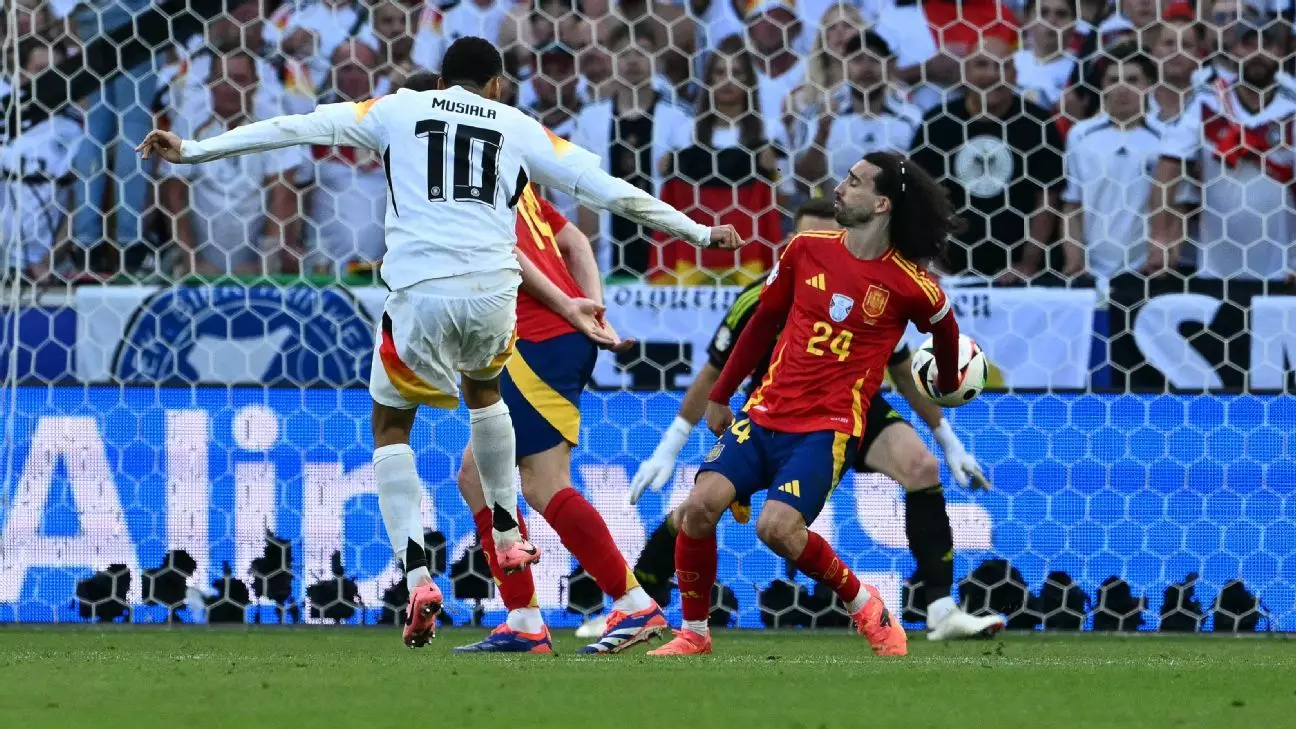The recently concluded Euro 2024 has been a platform for teams to showcase their prowess; however, it also spotlighted the ever-contentious role of officiating in high-stakes matches. The quarterfinal clash between Germany and Spain not only met the expectations of a thrilling contest but also ignited debates surrounding a pivotal refereeing decision—whether a handball should have been called against Spain’s Marc Cucurella. Following UEFA’s post-match analysis, the committee’s findings have questioned the integrity of the officiating amid an unresolved controversy that leaves fans and analysts puzzled.
In the decisive moments of the match, with a scoreline of 1-1 heading into extra time, Jamal Musiala made a shot that struck Cucurella’s arm. The subsequent reaction of German players was one of disbelief, feeling that the referee, Anthony Taylor, had failed to recognize what they deemed a clear infringement deserving of a penalty. The VAR, overseen by Stuart Attwell, upheld the original decision, supporting the view that Cucurella’s arm was in a natural position close to his body. It’s vital to understand how such judgments play a crucial role in shaping the outcomes of football matches and how they can trigger lasting divisions among fans and players alike.
This ruling carried monumental implications for both teams; Germany, denied a potential penalty, ultimately fell to Spain with a late winner from Mikel Merino. Spain’s victory not only advanced them in the tournament but eventually led them to claim the trophy, defeating England in the final. The ramifications of the quarterfinal officiating decision raised pressing questions about the consistency and clarity of handball rules applied by referees. It also highlights the importance of having robust guidelines that officials can reference to avoid subjective judgment calls that could bias the game’s outcome.
UEFA’s ongoing mission to refine its officiating standards includes regular reviews of contentious moments from matches. Under the guidance of Roberto Rosetti, the UEFA’s chief refereeing officer, discussions have centered around the interpretation of handballs, particularly about arm positioning when a shot is taken. This specific incident opens a dialogue about whether existing guidelines are adequate. If Cucurella’s arm placement is deemed acceptable under the current rule adjustments, it raises further issues about the consistency of officiating standards across different matches, sponsors, and teams.
As fans reflect on the heart-stopping moments of Euro 2024, the discussions around officiating remain prominent. The handball incident in the Germany-Spain match illuminates a greater narrative within football—the struggle for clear and universal refereeing standards. As UEFA continues to evaluate its processes and guidelines, it must embrace transparency and clarity in interpretation to mitigate the controversies that mar the sport. Only by refining officiating techniques and engaging in ongoing dialogues can we hope to foster an environment where the essence of competition prevails unclouded by interpretative disputes.

